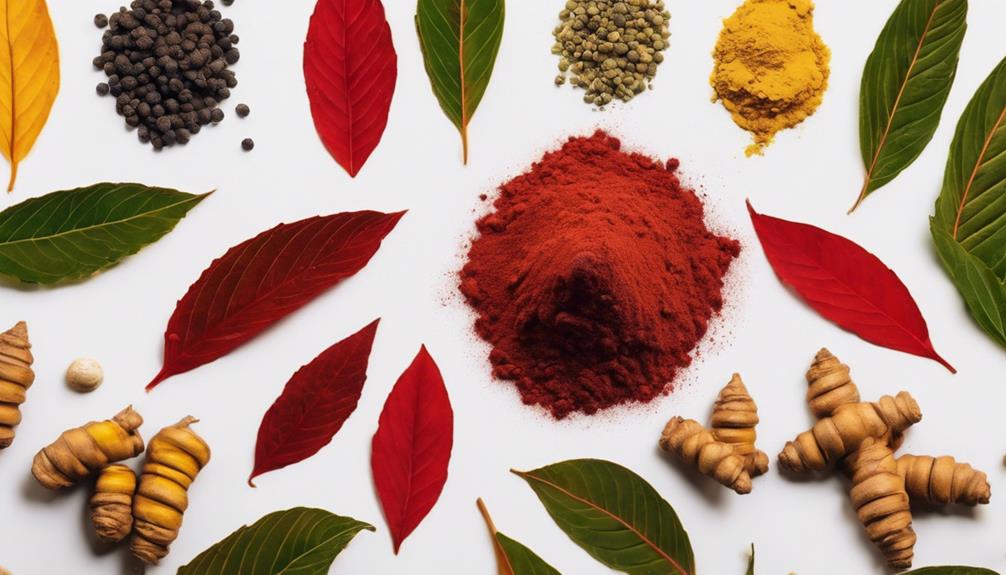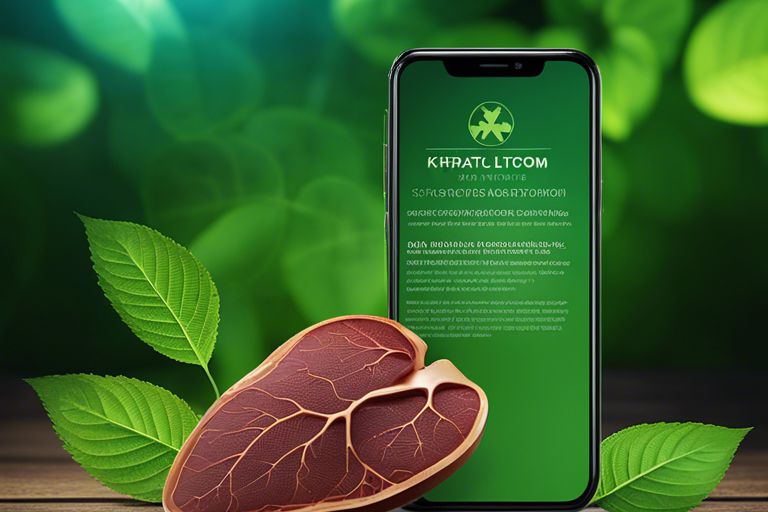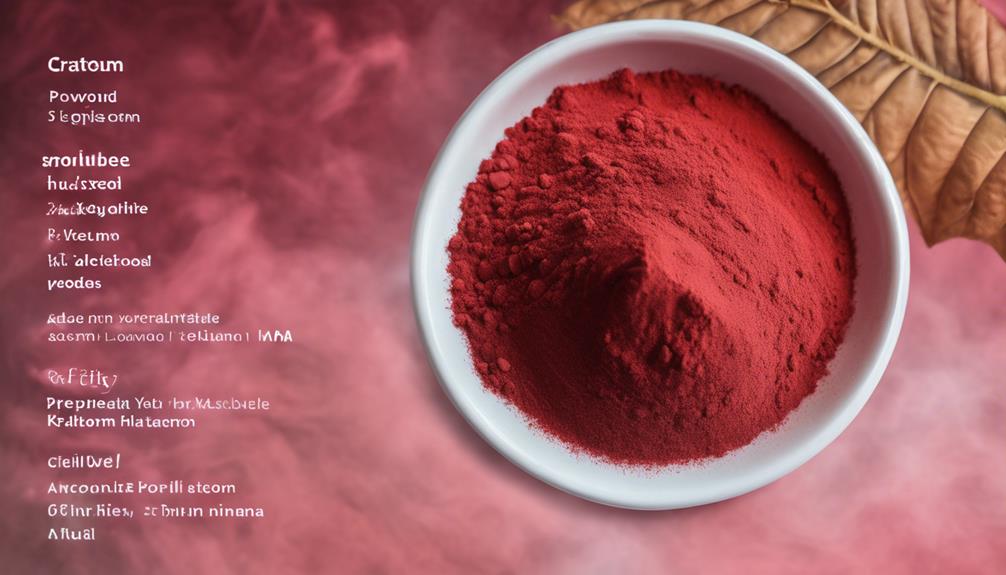You may not be aware that Red Kratom, particularly Red Thai Kratom, contains compounds that can have notable effects on pancreatic enzymes involved in digestion and fat metabolism. The inhibitory actions of mitragynine and quercetin on key enzymes like lipase and alpha-glucosidase could potentially offer benefits for managing conditions related to metabolism and obesity. Understanding how these compounds interact with enzymes to modulate physiological processes opens up intriguing possibilities for utilizing Red Kratom in addressing metabolic disorders and weight management.
Key Takeaways
- Red Thai Kratom inhibits lipase and alpha-glucosidase enzymes.
- Mitragynine and quercetin in Red Thai Kratom impact pancreatic enzyme activity.
- Mitragynine inhibits lipase; quercetin inhibits alpha-glucosidase.
- Regular use reduces blood triglyceride levels effectively.
- Mitragynine and quercetin synergistically reduce fat accumulation and starch digestion.
Potential Effects on Pancreatic Enzymes

The inhibition of lipase and alpha-glucosidase enzymes by Red Thai Kratom (RTK) extracts, particularly through the actions of mitragynine and quercetin, suggests a potential impact on pancreatic enzyme activity related to lipid and carbohydrate metabolism. Mitragynine, a prominent component of RTK, demonstrates inhibitory effects on both lipase and alpha-glucosidase activities. In parallel, quercetin, another compound found in RTK, exhibits specific inhibition of alpha-glucosidase enzyme activity. Notably, there are synergistic effects observed between mitragynine and quercetin concerning alpha-glucosidase inhibition. These findings hint at the intricate interplay between various components within Red Thai Kratom and their collective influence on enzymatic processes essential for lipid and carbohydrate metabolism within the pancreas. By modulating enzyme activity, RTK constituents could potentially impact how the body processes and utilizes lipids and carbohydrates, highlighting a new avenue for exploring the effects of this botanical substance on metabolic pathways essential for overall health and well-being.
Inhibitory Effects on Key Enzymes
Inhibiting key enzymes involved in digestion, Red Thai Kratom (RTK) extracts, containing mitragynine and quercetin, display significant effects on lipase and alpha-glucosidase activities. Mitragynine, a prominent component of RTK, exerts strong inhibitory effects on lipase, an essential enzyme for fat digestion. On the other hand, quercetin, another compound found in RTK, acts as a potent inhibitor of alpha-glucosidase, the enzyme responsible for breaking down carbohydrates. When combined, mitragynine and quercetin in RTK extracts show a synergistic inhibitory effect on alpha-glucosidase activity. This synergistic interaction between the two compounds contributes to the modulation of key enzymes involved in digestion and fat metabolism. The inhibitory effects of RTK on lipase and alpha-glucosidase highlight its potential to influence the digestive process and fat absorption, showcasing its significance in the context of enzyme modulation and overall metabolic effects.
What are the Effects of Red Kratom Compared to Beaufort Kratom Red Vein?
When comparing the effects of red kratom to Beaufort kratom red vein, it’s essential to consider the quality. High quality red vein kratom is known for its potent and long-lasting effects, offering relaxation, pain relief, and a sense of well-being. Beaufort red vein kratom may have similar effects, but the quality can vary.
Reduction in Triglyceride Levels

With regular use of Thai kratom, a reduction in blood triglyceride levels is consistently observed. Ethanol extracts of Green Thai Kratom (GTK) and Red Thai Kratom (RTK) have been found to inhibit lipase more effectively than alpha-glucosidase. This inhibition is attributed to the presence of mitragynine in GTK, which targets both lipase and alpha-glucosidase enzymes, potentially aiding in the reduction of triglyceride levels. Additionally, quercetin, a phytochemical compound found in Thai Kratom, specifically inhibits alpha-glucosidase, further contributing to the overall effect on triglyceride levels. The synergistic effects between mitragynine and quercetin on alpha-glucosidase activity are believed to enhance the reduction in triglyceride levels associated with Thai Kratom use. These findings highlight the potential of Thai Kratom, commonly found in Southeast Asia, to play a role in improving lipid profiles and managing triglyceride levels through its unique phytochemical composition.
Role in Managing Obesity
Playing an essential role in the management of obesity, Thai Kratom extracts have demonstrated significant potential in reducing fat accumulation in adipocytes. Within Thai Kratom, compounds like mitragynine and quercetin play an important role in inhibiting enzymes involved in fatty acid biosynthesis. Specifically, quercetin targets ACC1, effectively reducing fat accumulation within cells. Additionally, the synergistic effects of mitragynine and quercetin lead to a decreased rate of starch digestion and absorption, impacting factors contributing to obesity. Importantly, ethanol extracts of Thai Kratom exhibit the ability to inhibit lipase activity, suggesting a mechanism for regulating fat metabolism and potentially aiding in obesity management. These findings highlight the multifaceted approach of Thai Kratom in combating obesity through various pathways, making it a promising candidate for further exploration in the field of weight management.
Synergistic Effects of Compounds

Demonstrating a potent interplay between mitragynine and quercetin, the synergistic effects of these compounds in Thai Kratom exhibit notable promise in modulating key enzymes involved in metabolism. Mitragynine and quercetin work synergistically to inhibit the activity of alpha-glucosidase, with quercetin enhancing the inhibitory effects of mitragynine on both lipase and alpha-glucosidase enzymes. This cooperative action results in a more pronounced reduction in starch digestion and absorption rates. The ethanol extracts of Thai Kratom further amplify these effects by significantly influencing enzymes related to lipid and carbohydrate metabolism. The combination of alkaloid compounds, specifically mitragynine and quercetin, found in Thai Kratom, presents encouraging synergistic effects in managing pathways associated with obesity. By targeting these enzymes and pathways, the synergistic effects of mitragynine and quercetin in Thai Kratom hold promise for potential therapeutic interventions in conditions related to metabolism and obesity.









